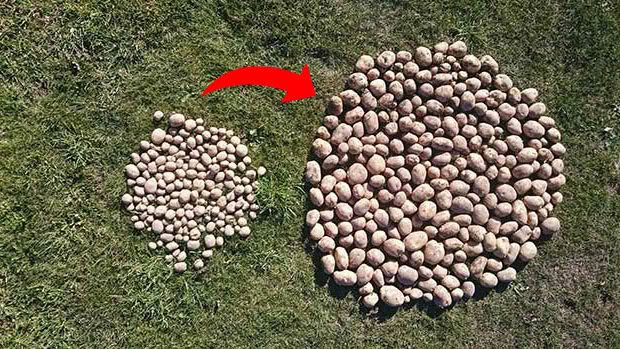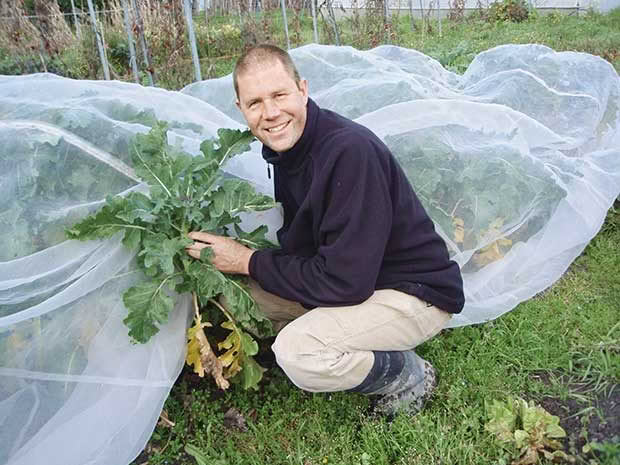How to grow a stunning potato crop and avoid psylid

Compare the yield and size of the potatoes from a control (uncovered) crop with a covered crop (right).
Words: Nadene Hall
When Dr Charles Merfield started trialling fine mesh as an organic option to prevent potato crops being affected by the tomato potato psyllid (TPP, Bactericera cockerelli), he thought he’d be solving a big headache for growers.
But even he was astonished at just how well things went. The researcher for the Future Farm Centre at Christchurch’s Biological Husbandry Unit found mesh covers led to a 40,250% reduction in the levels of TPP on the covered crops, but he also found it had huge savings for growers, and for the environment.
“The result is utterly stunning, it is effectively complete control of TPP. In comparison, achieving complete control of any insect pest on crops with agrichemicals is nigh-on impossible. That this can be achieved with a non-chemical approach is even more heartening.”
The trial used three different mesh sizes (with holes of 0.3mm, 0.4mm and 0.7mm), with the finest mesh giving the best results. All created a more favourable microclimate that enhanced crop growth and yield.
It provided considerable wind protection which stops plants from moving (even relatively mild shaking of plants has been shown to produce significant yield losses).
It created an increase in temperature, and reduced relative humidity, particularly during the day.

Dr Charles Merfield with a mesh-covered plot.
The mesh also had a huge effect on yield. The total yield of mesh-grown potatoes increased by 10 tonnes per hectare, with the two best mesh yields exceeding the theoretical maximum yield of potatoes in Canterbury, and upping the number of bigger potatoes within the crop.
“The yield results from this trial are astounding,” says Charles. “The theoretical yield limit has been blown out of the water, and mesh has significantly outperformed chemicals, especially for marketable yield. There is everything to like about this for growers.”
The economics are just as amazing. Mesh is much cheaper than chemicals – by about $1000 per hectare – so when combined with the better yield, gross margin profit increased between 27-75 per cent.
The only downside for the researchers was an issue controlling aphids, as nymphs were still able to penetrate the smallest mesh size and then could grow
in complete protection underneath it.
 This article first appeared in NZ Lifestyle Block Magazine.
This article first appeared in NZ Lifestyle Block Magazine.
